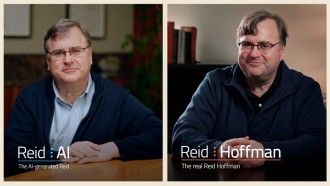Rosa Labs has released the latest version of Soylent, a meal-replacement product that is said to compete, in terms of nutritional content, the most common staple food. Dubbed Soylent 2.0, it has broken away from its old packaging and now comes in a convenient ready-to-drink form.
According to the company blog, Soylent 2.0 empowers its consumers not only through providing the vitamins, minerals, fats, carbohydrates and protein that their product contains, but also by freeing them from long lunch lines and effects of insufficient breakfasts and midmorning hunger pangs.
"It has been an exciting year for the Soylent team, and thanks to my fantastic co-founders and colleagues we have built the foundations of a strong business," says Rob Rhinehart, Soylent co-founder and CEO. The latest version of our product is just the starting point of the company's objective to expand the business as we enhance the abilities and expertise of the industry via research and innovative changes, he adds. Their company is gearing toward making food widely available and its manner of production, open for all.
In the past, Soylent was made available through a powder formula, which consumers will have to add water into. Through this packaging the company thinks that consumers can prepare the amount they need for the day all in one go. It is said to entail lower and more efficient production and shipping costs. During an interview, Rhinehart was asked about the rationale of the sudden shift of approach, even if they consider their previous product to be efficient.
"Shipping around water is a little inefficient," he admitted in an interview with The Verge. Nonetheless, the company can supersede that limitation by their discovery that Soylent 2.0 does not need refrigeration and that expiration will not ensue until at least a year, he adds. Thinking about the energy required for refrigeration makes their product a way to help save more resources compared to other food systems.
The makers of the Soylent 2.0 said that aside from consumers getting all the benefits of an all-vegan product, the environment is also sustained efficiently as 50 percent of its fat energy is derived from farm-free algae. The said innovative technology in the agricultural sector may pave the way for food production to have significant decreased effects on the ecological system. With this, it may indicate that the future generations may live with plenty of food sources and regard excellent nutrition as a normal inclination.
Photo: liz west | Flickr





